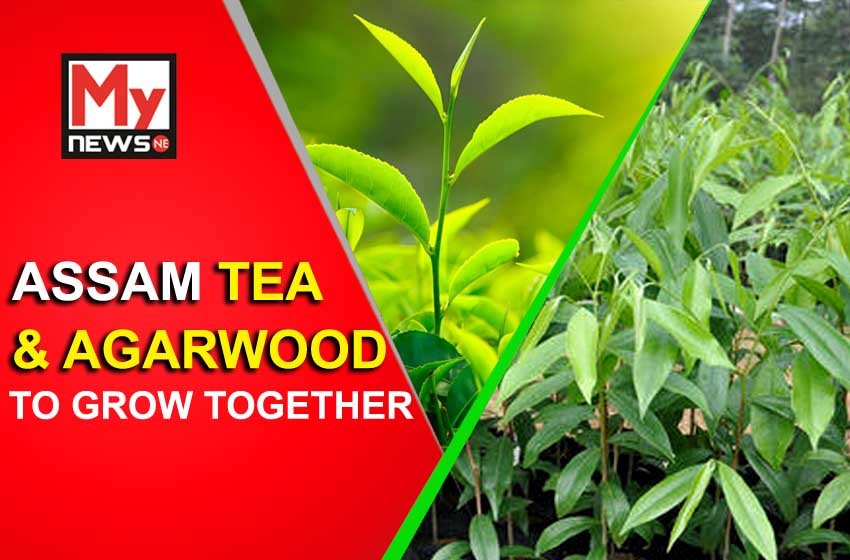Tea & Agarwood can grow together says NETA Chairman Sunil Jallan
After the accomplishment of the bid to commercialise the traditional Agarwood plantation and Agarwood-related trades in the state with the provision to infuse artificial inoculation of the fungus, locally known as ‘Sanchi Vecur’ (Agarwood fungus)in the immature Agarwood trees and bids are now afoot to join-up the State’s tea industry with Agarwood plantation to open up a new vista for the plantation-based economy of the State.
The proponents of this venture are of the opinion that this endeavour would go a long way in providing both the tea industry and the Agarwood-based industry of the State a new direction. The economic prospect of this stitching together of the two traditional industries of the State is tremendous. This can act as a game changer for both the tea and the Agarwood sectors, they asserted.
President of AAPTA, Jehirul Islam has been engaged in generating public awareness about the importance of Agarwood plantation and Agarwood-based industry for the past over one decade now. Islam is also the inventor of the artificial incubation of the Sanchi Vecur (Agarwood fungus) in the Agarwood trees. NETA Chairman, Sunil Jallan, said that tea estates can use about five per cent of their unused land for Agarwood plantation.
Explaining the economic prospect of Agarwood plantation on such unused/fallow TE areas, Islam said that from one bigha of land TEs can, on an average, produce 1700 kgs of green tea leaves annually. So, from one hectare of land they can produce 12,750 kgs of green tea leaves in a year on an average. If the selling rate per kg of green tea leaf is Rs 19, then, per year, a TE can earn Rs 2, 42, 250 from a hectare of land. In 12 years, the total earning from a hectare of land earmarked for growing green tea leaves will stand at Rs 29, 07,000.
On the other hand, on the Agarwood grown on a hectare of land, a TE is to spend around Rs 1, 19, 57, 600 for ten years, which is inclusive of the fixed consultation fee for ten years (Rs 2, 00,000) and inoculation cost (Rs 2,500 per tree) and after 11 years from plantation, that is – two to three years after inoculation – an infected Agarwood tree will pay back the TE an amount of Rs 25,000. And thus, from a hectare of inoculated Agarwood plantation, the TE will earn Rs 10, 80, 00,000, and, thus, the net income will stand at Rs 9, 60, 42,400 at today’s prices, said Islam.
Resorting to Agarwood plantation on the fallow land, TEs would be highly benefited and since the tea industry is an organised one, its taking to Agarwood plantation is also going to help the Agarwood industry as well. This will in the long run help the State’s economy to grow, said both Mr. Jallan and Mr. Islam.


Comments are closed, but trackbacks and pingbacks are open.